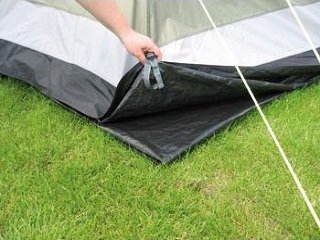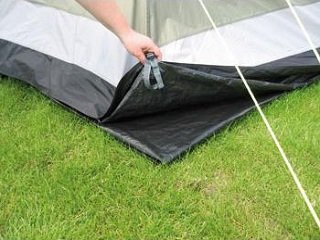 There are those of us who consider the outdoors to be our home away from home, and spend as much time sleeping under the stars as we can. There are also many who, due to busy schedules and little free time, limit their camping trips to a few weekends each summer and casually load their gear into the car after allowing it to collect dust all year. While the products we trust during our ventures into the wilderness are designed to withstand a lot of punishment, we do need to take care of them year-round. This includes everything from boots to backpacks, and sleeping bags to tents. Tents are what protect us from the elements and provide shelter after a long day on the trail, but these vital pieces of equipment need some TLC now and then. Keep reading to learn a few simple ways to get a few more miles out of your own tent and ensure it doesn’t fail on your next trip.
There are those of us who consider the outdoors to be our home away from home, and spend as much time sleeping under the stars as we can. There are also many who, due to busy schedules and little free time, limit their camping trips to a few weekends each summer and casually load their gear into the car after allowing it to collect dust all year. While the products we trust during our ventures into the wilderness are designed to withstand a lot of punishment, we do need to take care of them year-round. This includes everything from boots to backpacks, and sleeping bags to tents. Tents are what protect us from the elements and provide shelter after a long day on the trail, but these vital pieces of equipment need some TLC now and then. Keep reading to learn a few simple ways to get a few more miles out of your own tent and ensure it doesn’t fail on your next trip.
One of the simplest, but easily overlooked, ways to extend the life of your tent is to use a ground sheet. You can either purchase one or use a standard tarp, cut to fit the dimensions of your tent. A ground sheet will help maintain the integrity of your tent’s floor material by protecting it from rocks and moisture from the ground. It also acts as a clean place to pack up in the morning. Just be sure the ground sheet isn’t bigger than the tent itself, or any rain will find its way in and puddle.
Another way to prolong your tent’s life is to keep it out of the sun, as UV rays can weaken material over time. This may be tricky in certain situations, but it can be accomplished by either making camp in the shade or employing the use of a rain fly.
While it may be tempting to bring your boots inside at night, to keep out bugs, leaving them outside goes a long way towards preventing against wear and tear to the tent’s interior. The floor can be torn or worn down from the soles of boots, as well as any possible rocks lodged within the treads. Also, wet boots make for a wet tent, which is never fun.
The poles that come with tents are designed to withstand a fair amount of stress, but knowing how to handle them properly will help protect them from snapping. For example, many will fold them together from one end to the other, but starting at the middle will evenly distribute the tension and keep them from breaking.
Finally, when it comes to packing your tent for a new day, there are a few things to keep in mind. First, never pack a wet tent. Not only will the moisture damage the material, but mold and mildew will form as well, which is not fun. Also, be sure to never fold your tent in the same way too often. Consistently folding along the same crease will create a weak point, which can lead to an unexpected tear.
Often, we forget that our equipment is comprised of materials and components that, if neglected or mistreated, will diminish in integrity or even break suddenly. Tents are no exception, and to ensure that the expensive tent you just purchased lasts a long time, take a few moments to add a ground sheet or take off your boots. I promise that, when you’re still using the same tent years from now, you’ll be glad you did.








